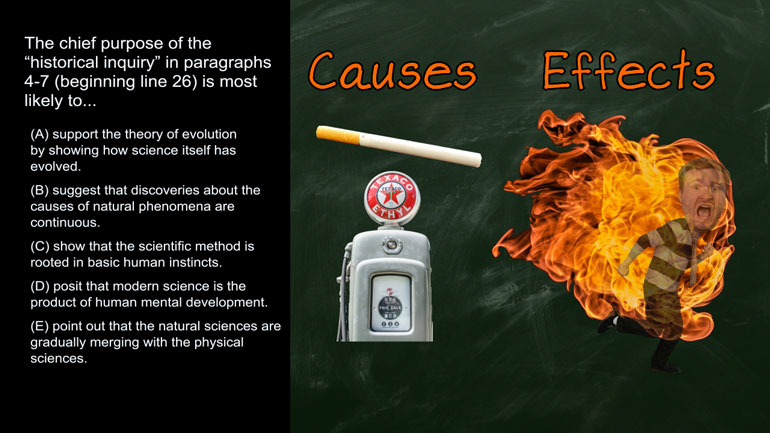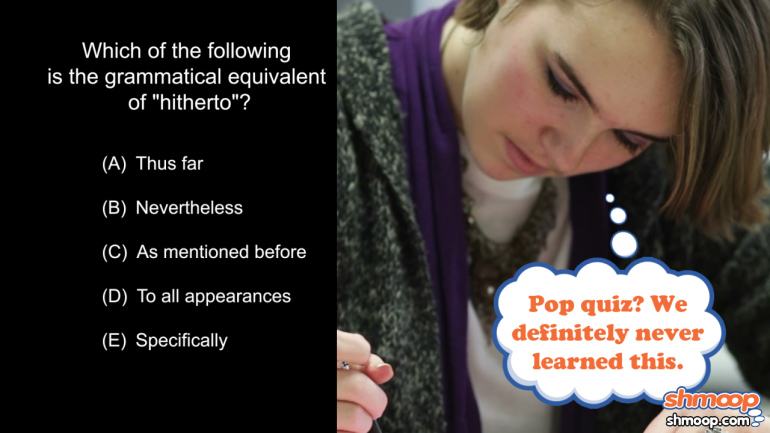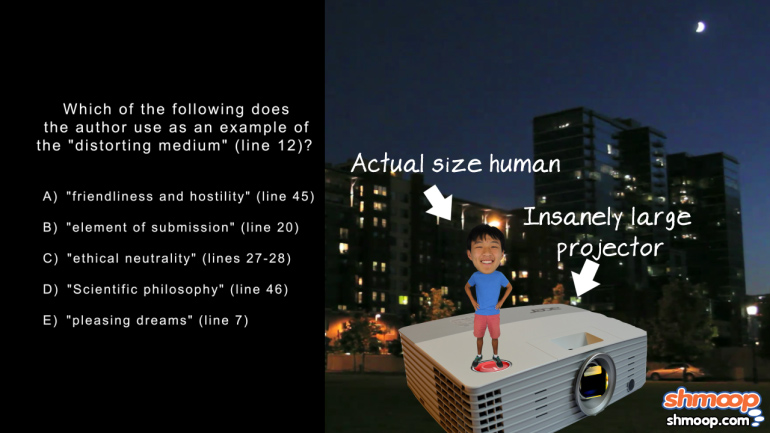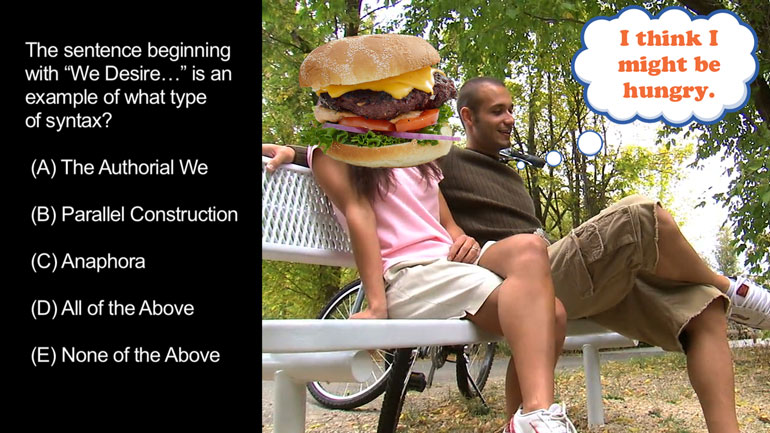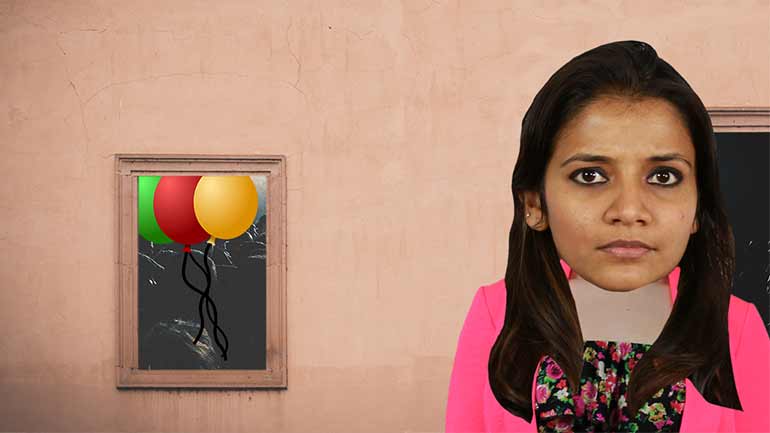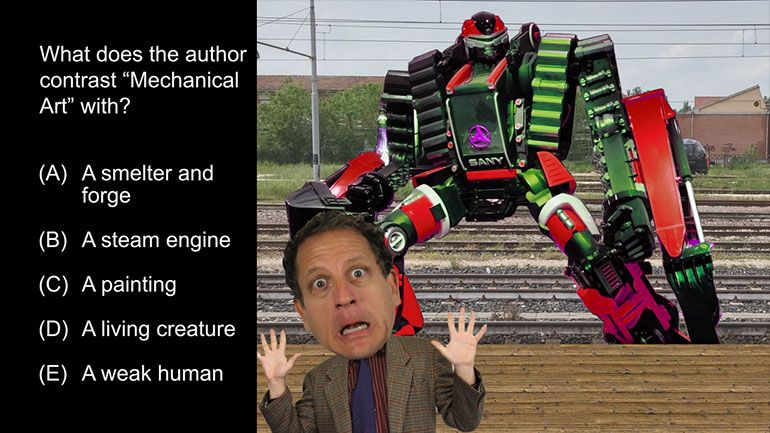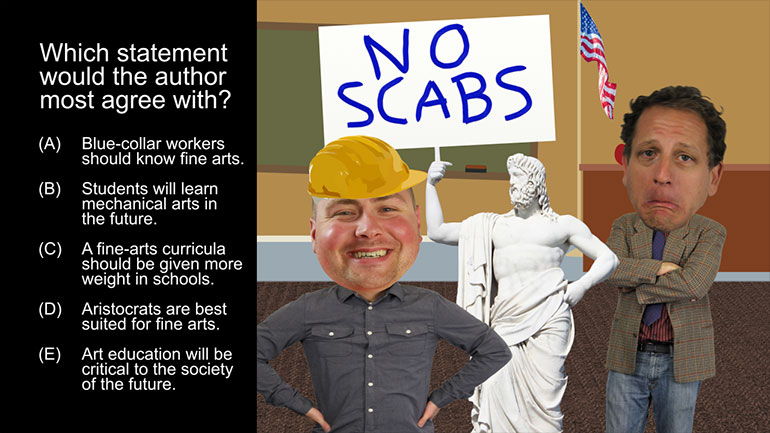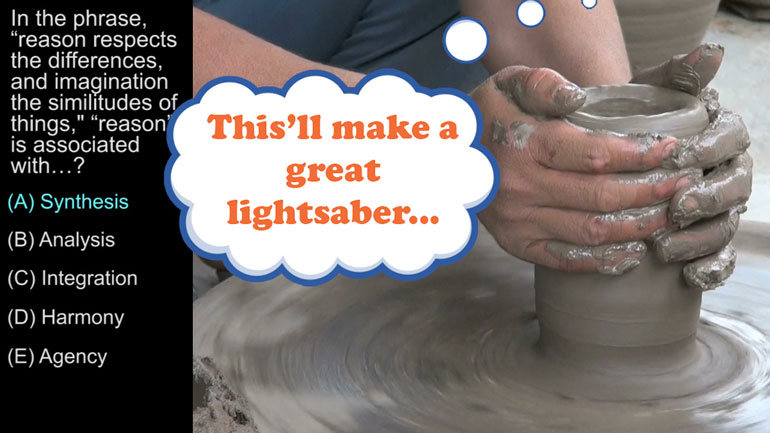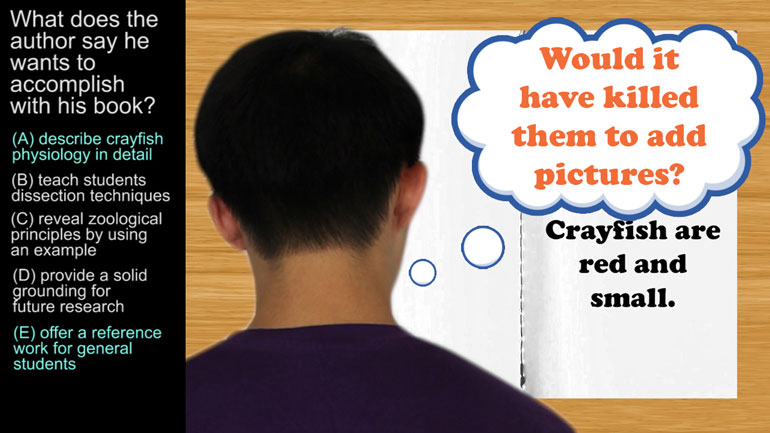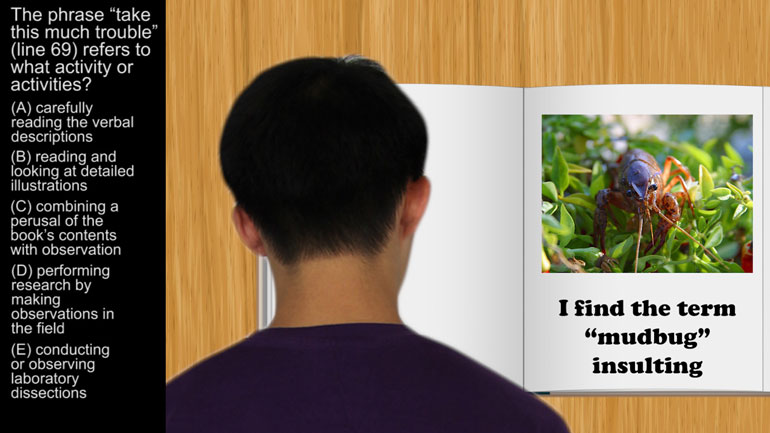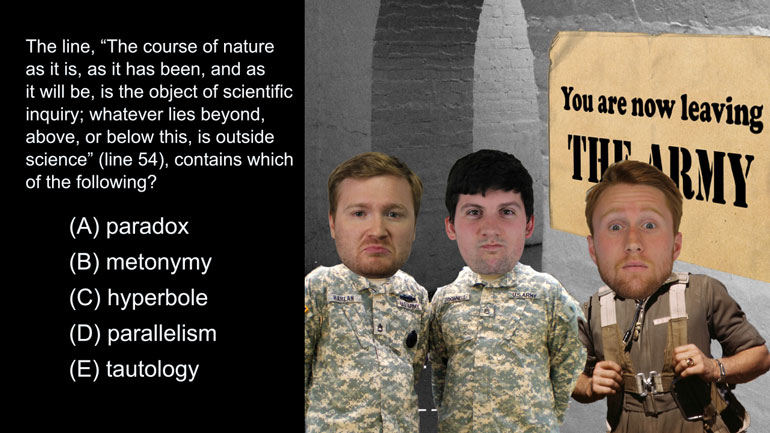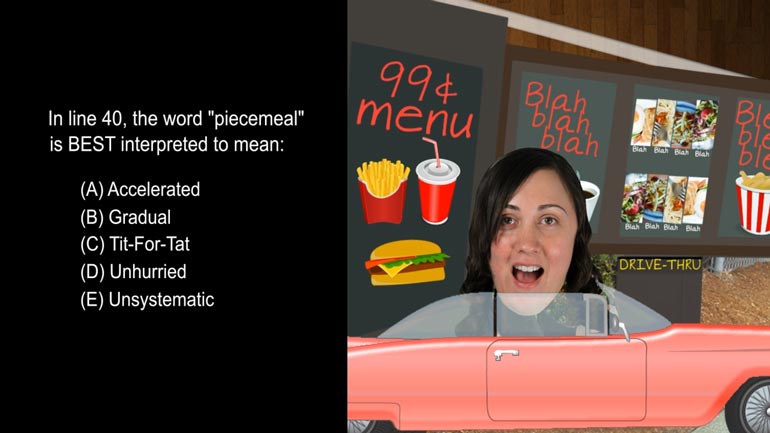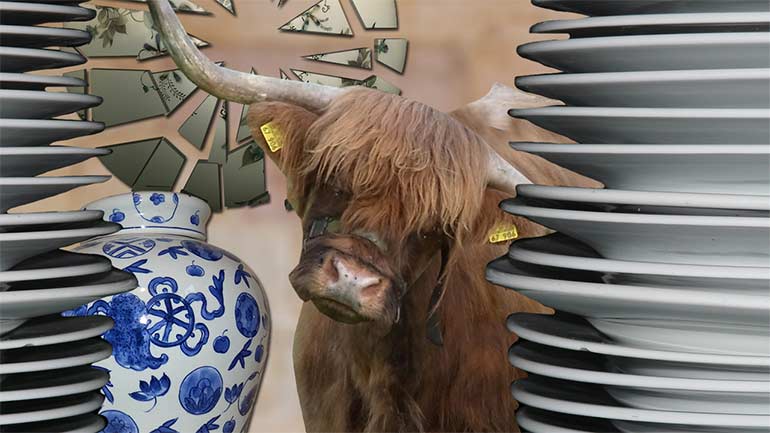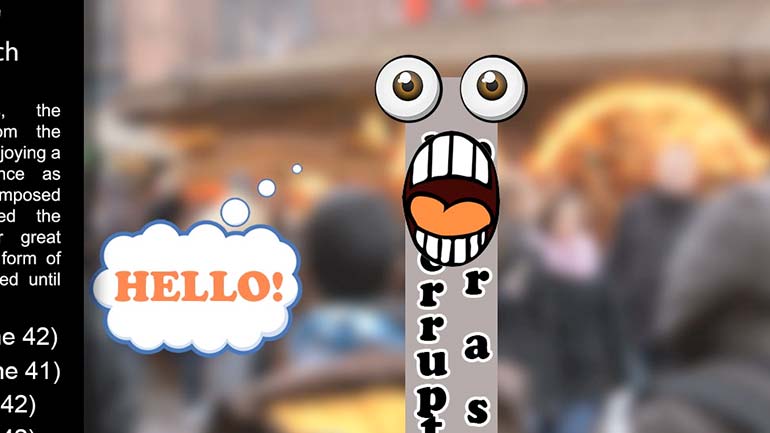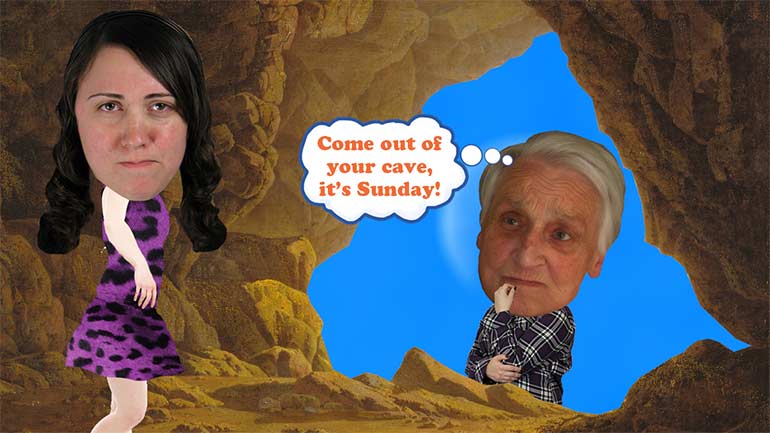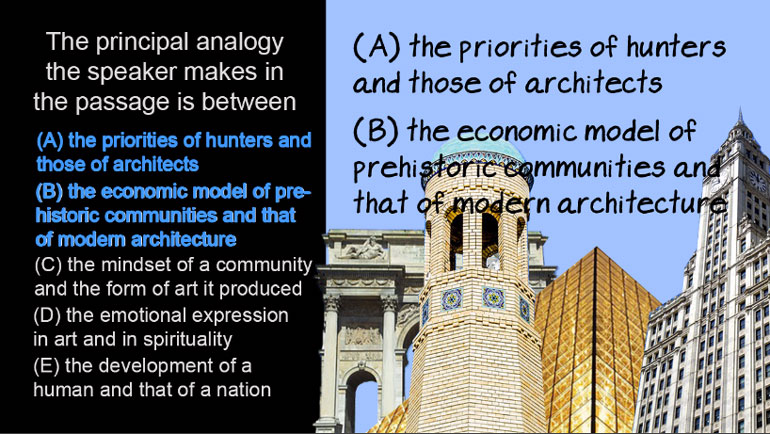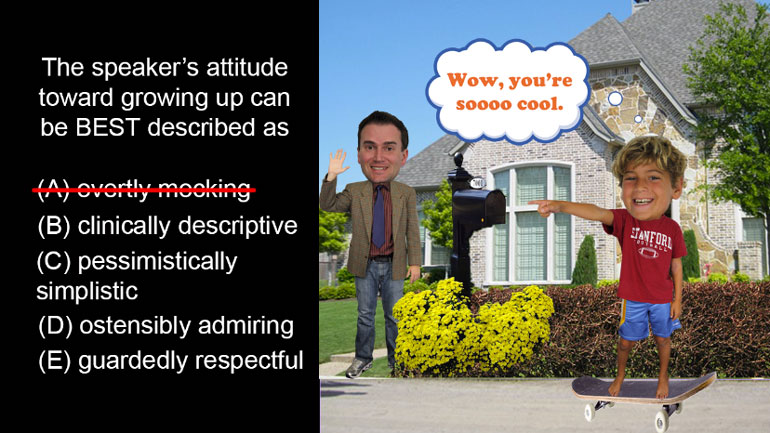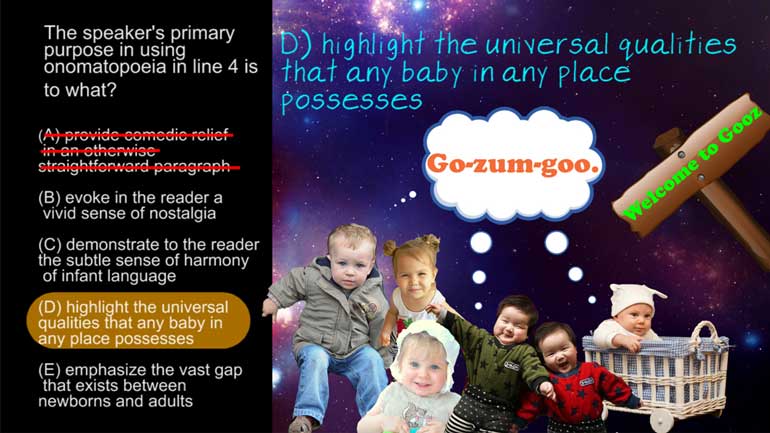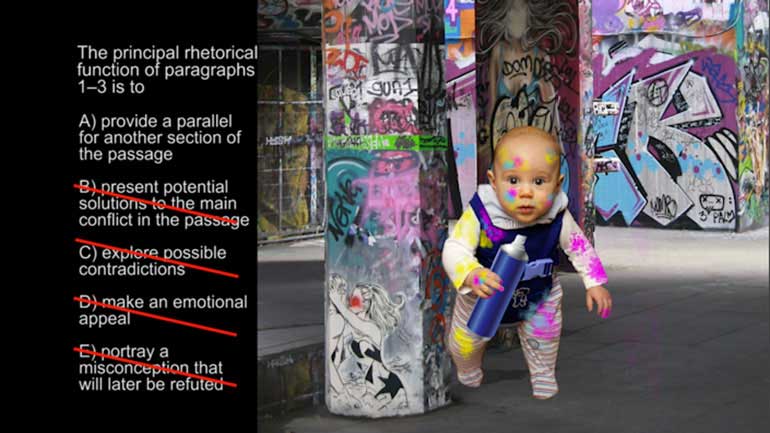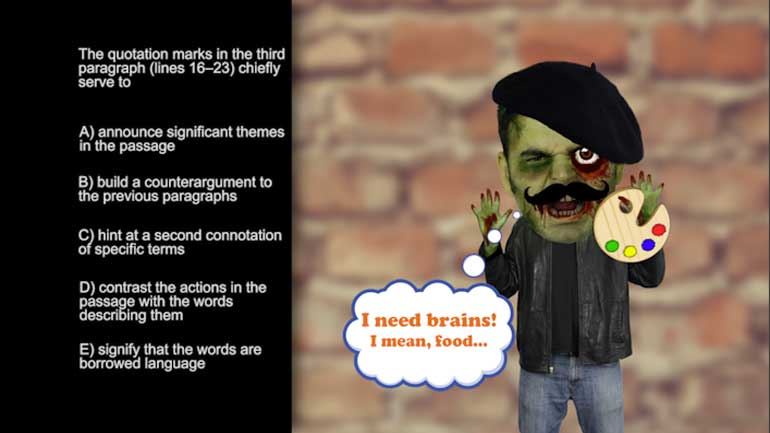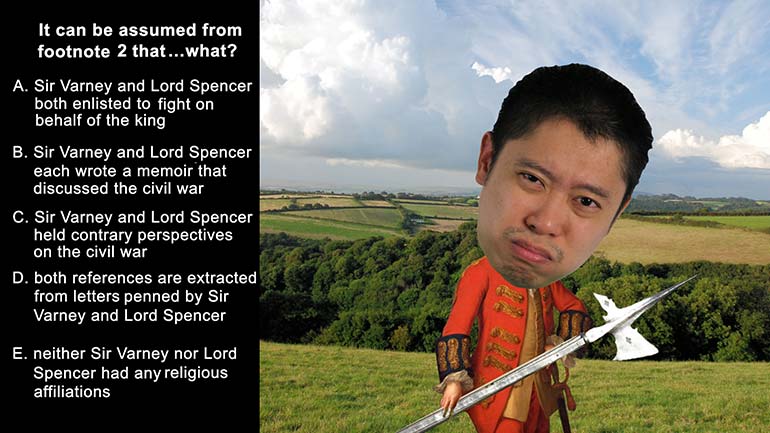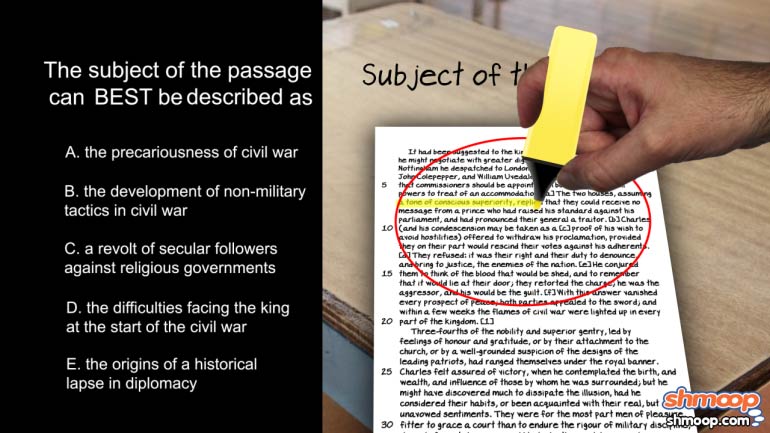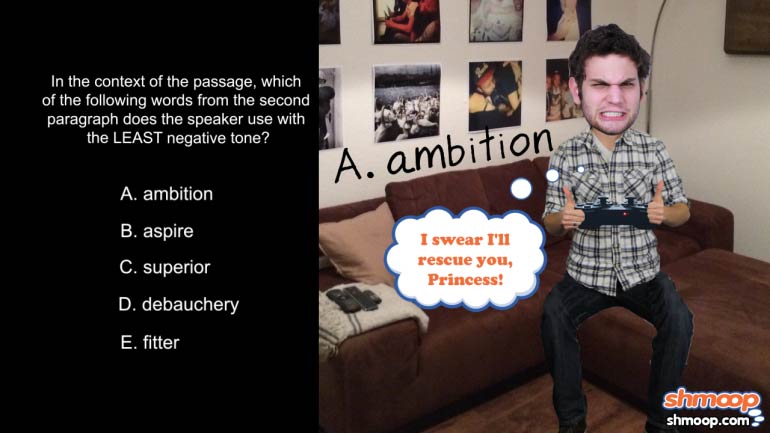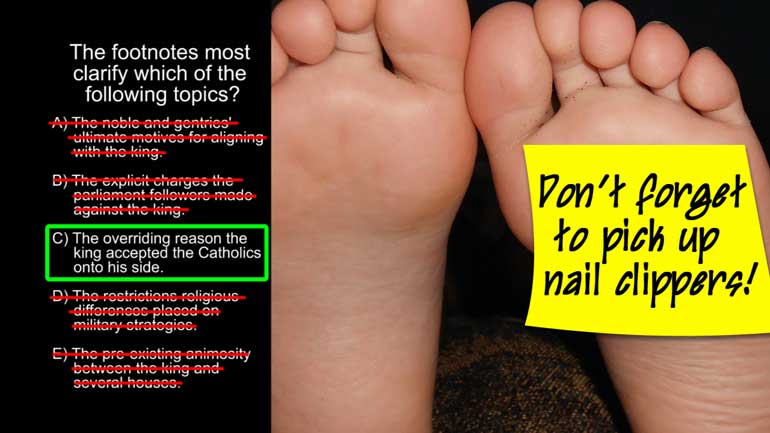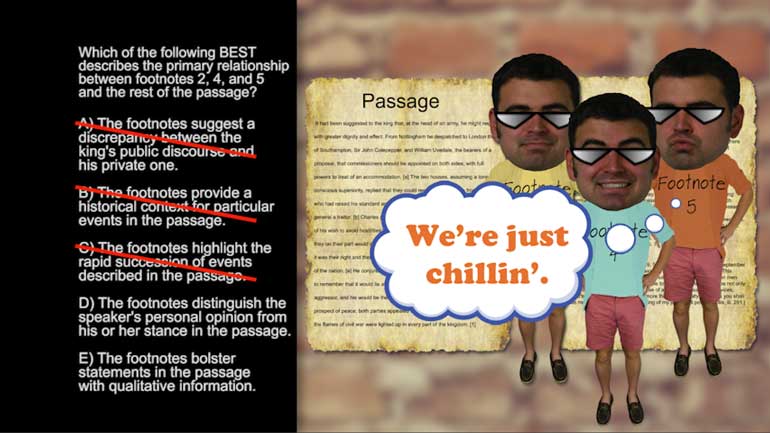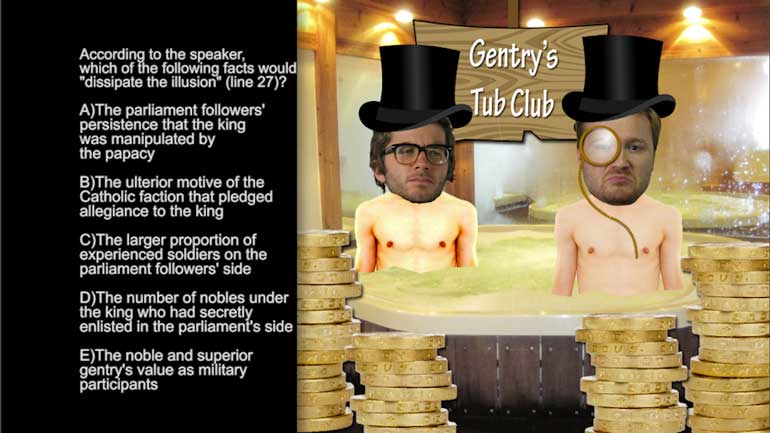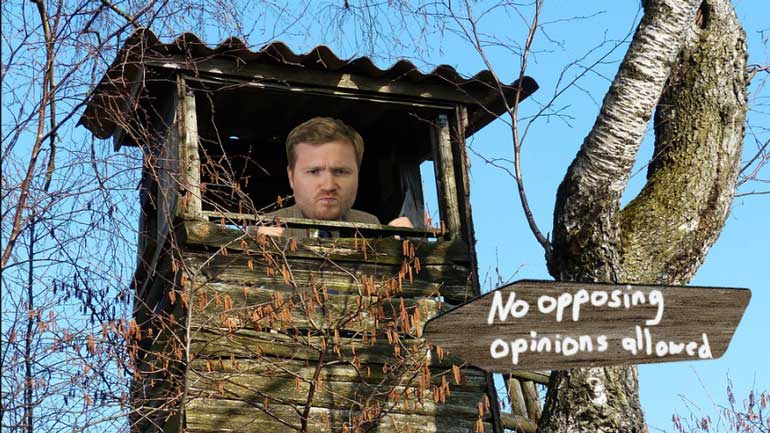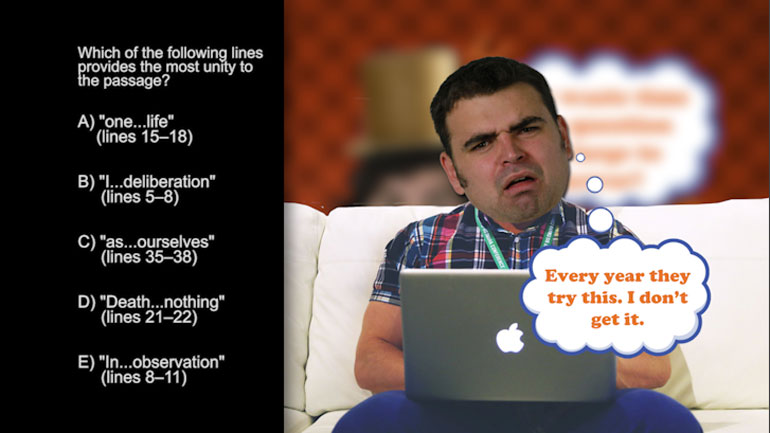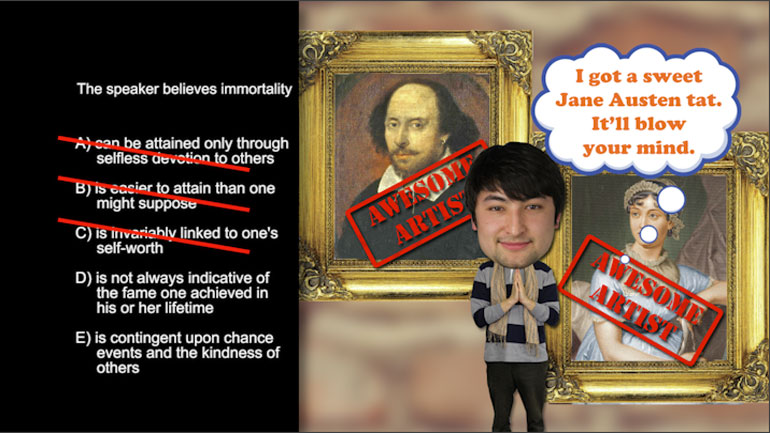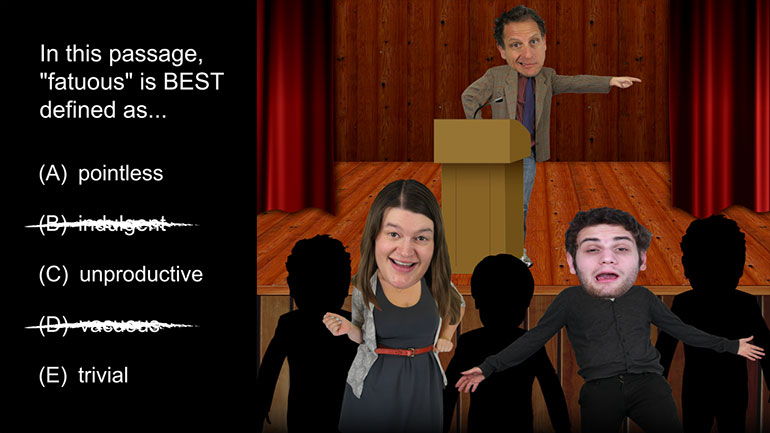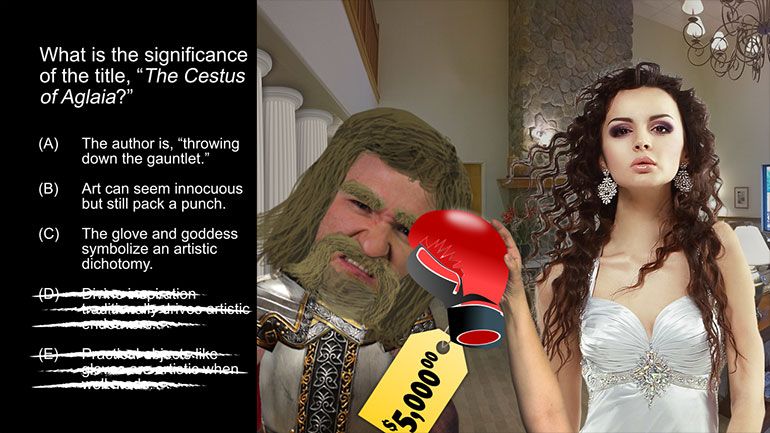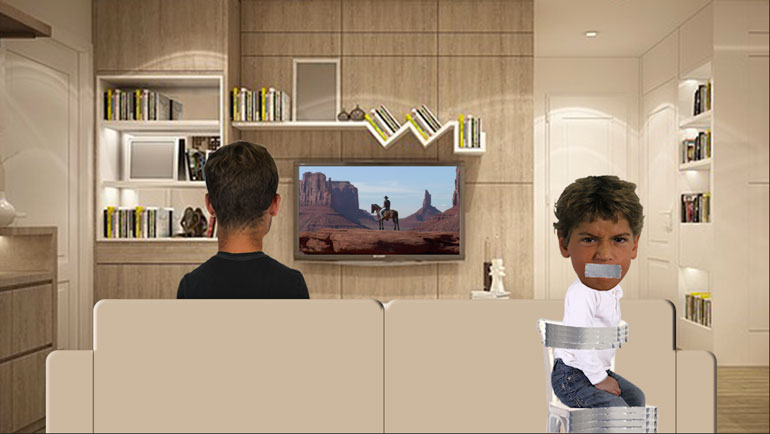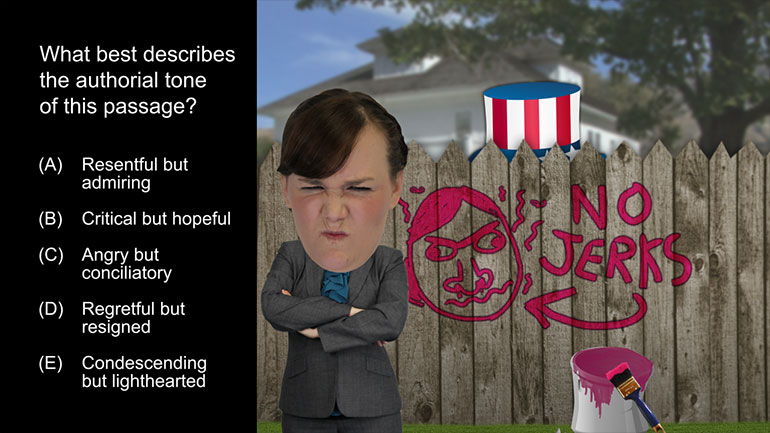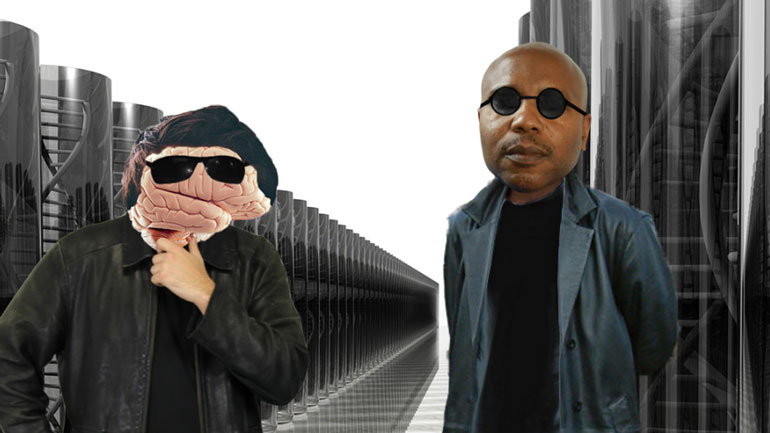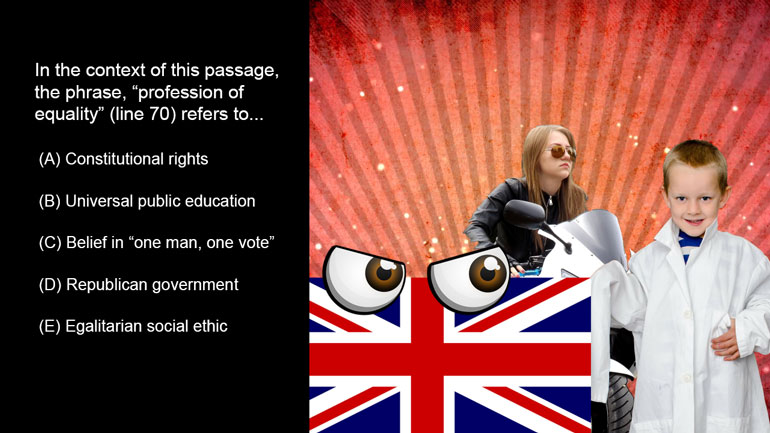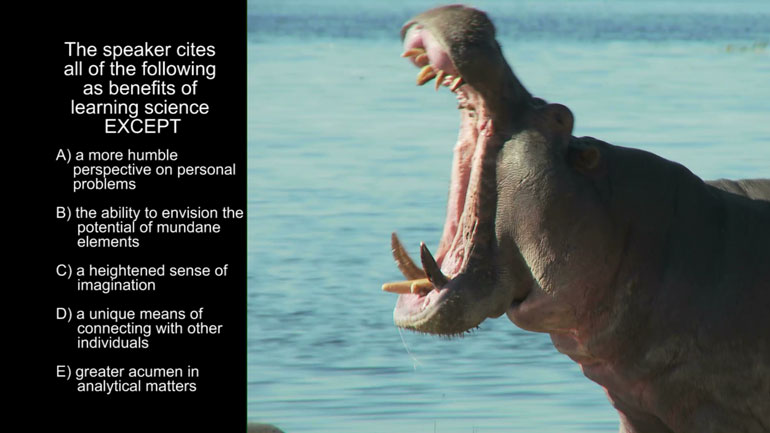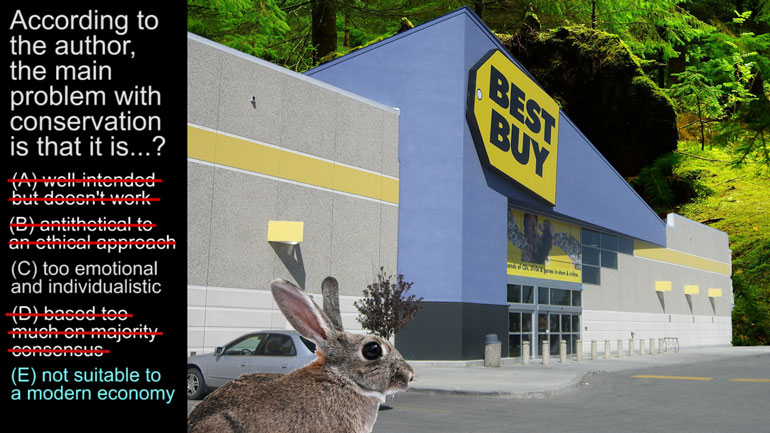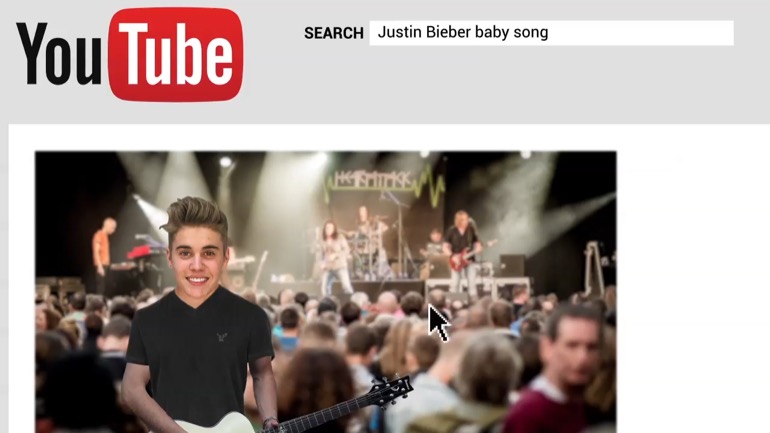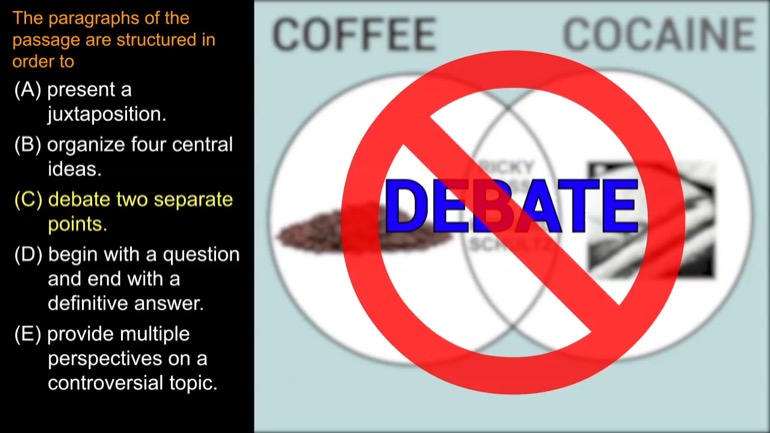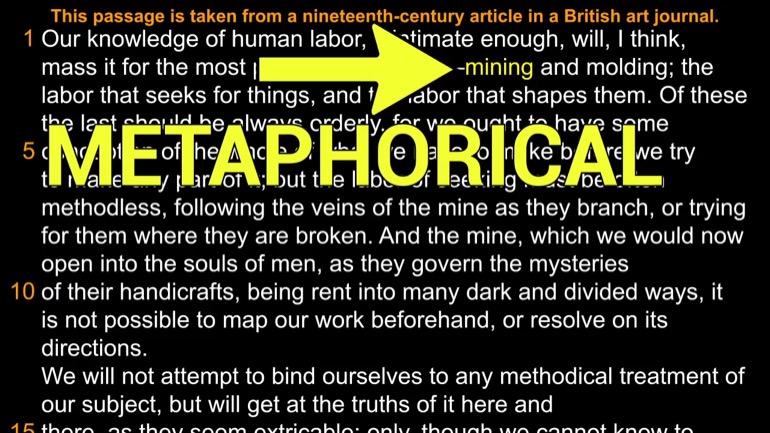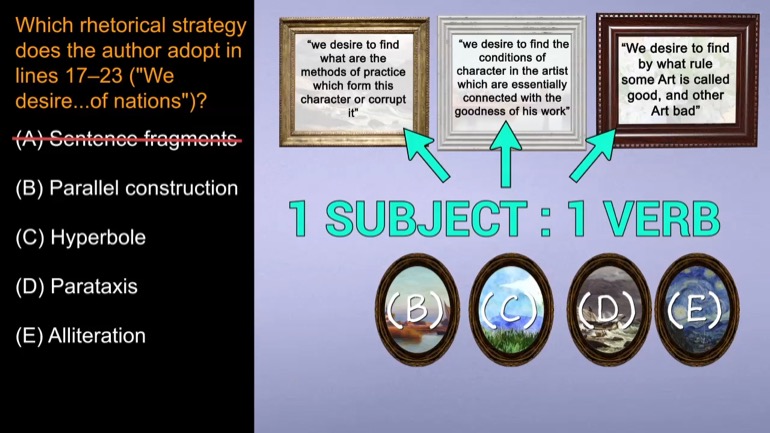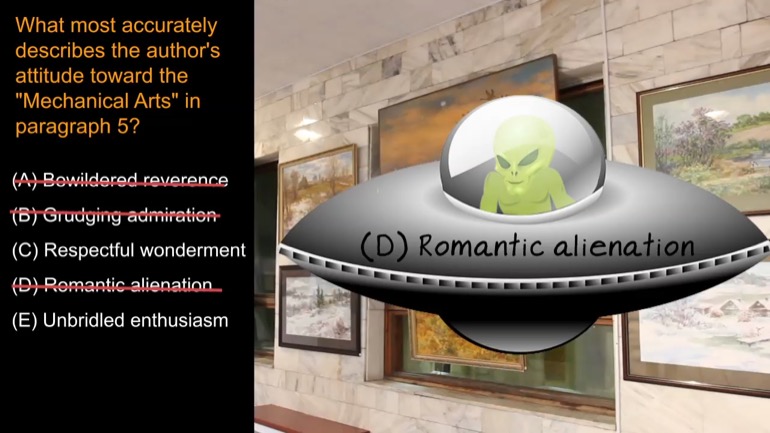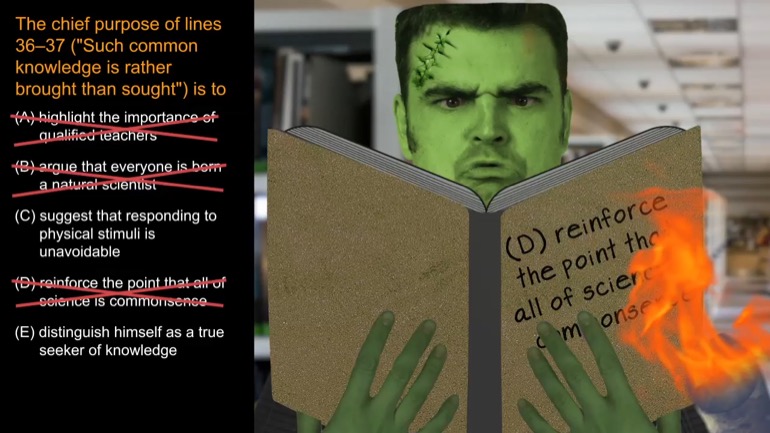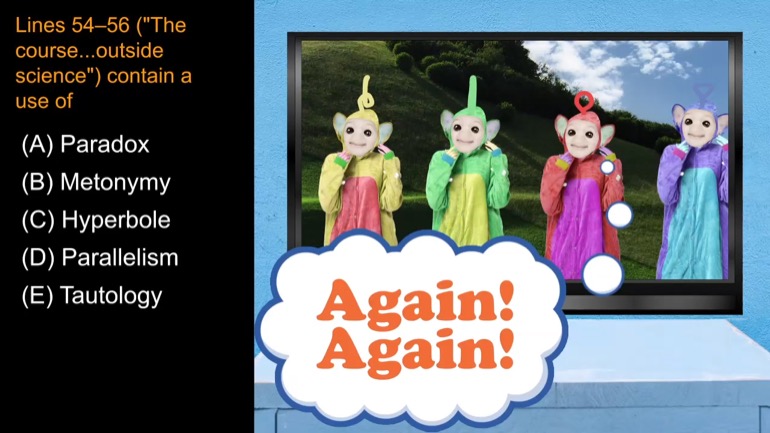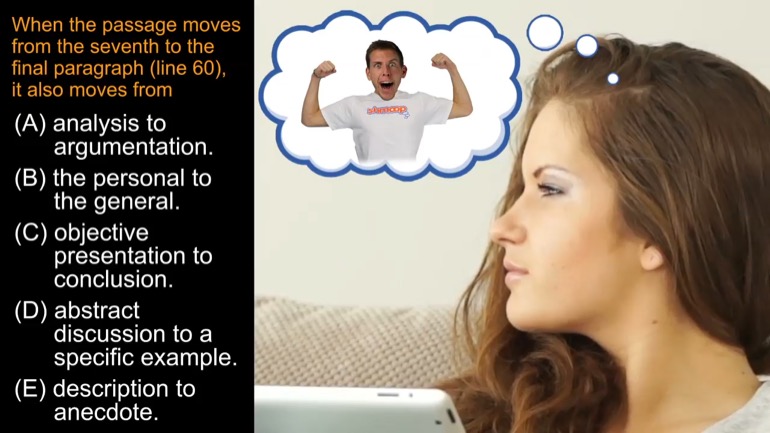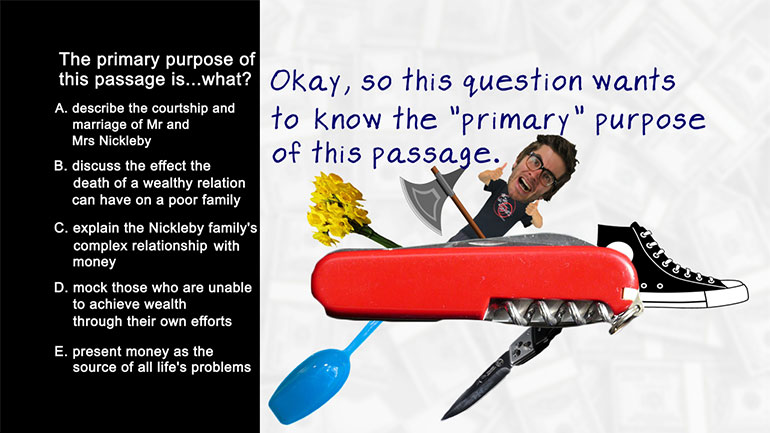ShmoopTube
Where Monty Python meets your 10th grade teacher.
Search Thousands of Shmoop Videos
AP English Language and Composition Videos 152 videos
Which answer best describes the theme of the following passage? And if you say "fission chips," we'll give you half credit. The AP test graders mig...
AP English Language and Composition 3.5 Passage Drill. How is "forcible" being used here?
Take a look at this shmoopy question and see if you can figure out which device the speaker employs the most.
AP English Language and Composition 6.1 Passage Drill 211 Views
Share It!
Description:
AP English Language and Composition 6.1 Passage Drill. The phrase "Mass it" in line 2 refers to what?
Transcript
- 00:00
[ musical flourish ]
- 00:03
And here's your Shmoop du jour, brought to you by the private sphere,
- 00:07
basically the area you shouldn't invade unless
- 00:09
you know a person pretty darn well.
- 00:11
My precious.
Full Transcript
- 00:12
Okay, so we've just finished reading a bunch of ginormous passages
- 00:16
from eight different sources and, boy, are our eyes tired. [ groan ]
- 00:20
This free response question wants us to use at least
- 00:23
three of the eight sources in our essay answer
- 00:25
and it also wants that essay to be coherent and, well,
- 00:29
well-written. Jeez, so demanding.
- 00:31
All right, so we're given this prompt.
- 00:33
Read the following sources (including the introduction) carefully. Duh.
- 00:37
Then write an essay in which you analyze how women were represented in both
- 00:41
the public sphere and private sphere.
- 00:44
So we need to read through the sources and use the content to develop
- 00:47
our position on how women are represented in, hmm, a couple of sphere thingies.
- 00:53
Sphere things. Yeah, these.
- 00:55
Well, really, we can just ignore the "sphere" part.
- 00:58
It wants us to analyze women's roles in the home as well as
- 01:00
the working world. Now, how do we attack this thing?
- 01:03
Well, slow and stealthy from the left flank, right?
- 01:06
First of all, we need to recognize that our prompt is telling us to
- 01:09
analyze, not argue. Big diff.
- 01:12
So no getting defensive and throwing a hissy fit.
- 01:15
This is all about exploring and evaluating the eight different
- 01:19
approaches to a single subject, not about trying to convince our reader of something.
- 01:23
Got that? We need to stay professional and unbiased,
- 01:26
like a television reporter who will lose his job if he's
- 01:29
caught editorializing.
- 01:30
Can't hurt to make sure our hair looks nice, either.
- 01:34
We also know that we need to discuss both women in the
- 01:37
public sphere, the labor force,
- 01:40
and in the private sphere, like Home on the Range.
- 01:44
Some of the sources refer to one or the other,
- 01:46
so we know we'll have to pull from a couple of each to cover our bases.
- 01:50
Sources A, F, and H are all pro-public.
- 01:54
B, C, and D think that women should be home in the kitchen making babies.
- 01:58
E and G deal with women appearing in public, even if they aren't
- 02:02
strictly about them joining the workforce.
- 02:04
So, which to choose? So many options.
- 02:07
It's like trying to pick out a pair of pumps when DSW is having a sale.
- 02:10
Tough.
- 02:11
If you read the passages carefully,
- 02:13
you should notice that some of them naturally work together.
- 02:16
A and C, for example, even though they demonstrate stances on each side of the issue,
- 02:21
are both from the New Jersey Constitution,
- 02:24
so they're clearly linked.
- 02:26
Less obvious,
- 02:27
sources F and H are both about women speaking and defending their rights.
- 02:32
E and G are both about how men view women appearing in public.
- 02:36
And B and D would probably be appalled that today's women no longer wear hoop skirts and corsets.
- 02:41
In other words, they have some pretty old-fashioned ideas about a woman's role in society.
- 02:45
The tones and perspective may differ from one another,
- 02:48
but, as long as we can draw comparisons and make connections,
- 02:51
we can compose an essay that is thoughtful,
- 02:53
well-researched, and compelling.
- 02:55
Don't forget to start with a thesis.
- 02:58
We can't know where we're going if we haven't first determined where we're starting from.
- 03:02
Remember not to insert your own opinion.
- 03:05
It might be difficult in cases such as these where there are so many
- 03:08
boneheaded, antiquated ideas being bandied about,
- 03:10
but, hey, it was a different time.
- 03:12
And, besides, it's our job to analyze the arguments of others,
- 03:15
what they did make a good case for,
- 03:17
how they structured their arguments, et cetera.
- 03:20
Include at least one pro-public and one pro-private.
- 03:24
And get at the heart of what these writers believed
- 03:26
and why they might have believed those things at that time.
- 03:29
Before you start a-writin', or maybe after you're done,
- 03:32
check out this sample essay to get an idea of
- 03:34
what those AP gurus are all looking for.
- 03:37
Yeah, this one.
- 03:39
My precious.
Related Videos
AP English Language and Composition: Passage Drill Drill 1, Problem 2. What is the speaker's primary purpose in using onomatopoeia in line four?
AP English Literature and Composition 1.1 Passage Drill 7. The primary purpose of this passage is what?
Wishing upon a star may help you pass your AP English Language and Composition test, but answering this question would be a safer bet.
Take a look at this shmoopy question and see if you can figure out which device the speaker employs the most.
Feel like shifting gears and answering a question about shifting tones? We've got you covered. Take a look at this question and see if you can foll...














